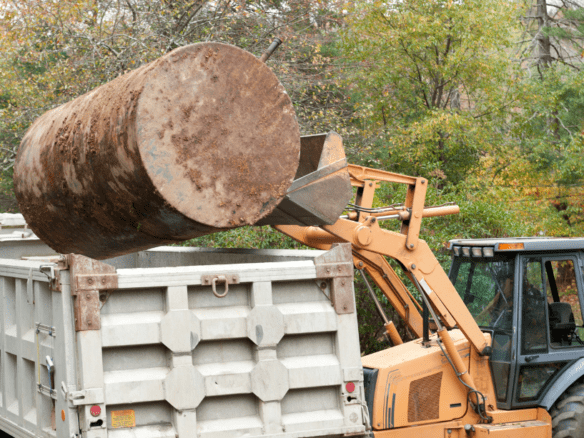Buying a home is a monumental decision, and doing it without a realtor might seem daunting. But with the right approach and resources, you can navigate the process successfully and even save some money in the process. Here’s a comprehensive guide to help you buy a home without a realtor.
Understanding the Real Estate Market
The first step in buying a home without a realtor is to familiarize yourself with the real estate market. This means understanding current market conditions, pricing trends, and what you can realistically afford.
Importance of Market Research
Conducting thorough market research will give you a clear picture of the types of homes available within your budget. You’ll also get a sense of how competitive the market is, which can influence your purchasing strategy.
Tools and Resources for Market Analysis
Use online resources like Zillow, Redfin, and Realtor.com to research homes in your desired area. These platforms provide detailed information about property prices, neighborhood demographics, and market trends. Local newspapers and real estate magazines can also be valuable sources of information.
Setting Your Budget
Before you start house hunting, it’s crucial to determine how much you can afford to spend.

Assessing Your Financial Situation
Evaluate your financial health by looking at your savings, income, and expenses. This will help you understand how much you can allocate for a down payment and monthly mortgage payments.
Getting Pre-Approved for a Mortgage
A mortgage pre-approval letter shows sellers that you are a serious buyer. It also gives you a clear idea of how much you can borrow, which helps narrow down your home search.
Identifying Your Needs and Wants
Knowing what you want in a home is essential to making the search process efficient and enjoyable.
Creating a Wish List
List the features you want in your new home, such as the number of bedrooms, bathrooms, and any specific amenities like a backyard or garage.
Prioritizing Features
Decide which features are must-haves and which ones are nice-to-haves. This will help you make quicker decisions when viewing properties.
Searching for Homes
With your budget and wish list in hand, it’s time to start searching for your dream home.
Online Real Estate Platforms
Websites like Zillow, Trulia, and Redfin are excellent tools for finding homes for sale. You can filter search results based on your criteria and save listings that catch your eye.
Visiting Open Houses and Neighborhoods
Attend open houses to get a feel for different properties and neighborhoods. This will also give you a chance to meet sellers and ask questions directly.
Conducting Property Research
Once you find a property you like, it’s important to conduct thorough research.
Evaluating Property History
Look into the property’s history, including previous sales, any renovations, and how long it has been on the market. This information can provide insights into the property’s value and potential issues.
Understanding Property Value and Comparables
Research comparable properties (comps) in the area to ensure the home you’re interested in is priced fairly. Comps are similar homes that have recently sold in the same neighborhood.
Scheduling and Attending Showings
Without a realtor, you’ll need to schedule showings yourself.
How to Schedule Showings Without an Agent
Contact the seller directly or their listing agent to schedule a showing. Be polite and flexible with your availability.
What to Look for During Showings
Pay attention to the condition of the home, any potential repairs needed, and how well it matches your wish list. Take notes and photos to help you remember each property.
Making an Offer
When you find the right home, it’s time to make an offer.
Crafting a Competitive Offer
Research recent sales in the area to determine a fair offer price. Include a personal letter to the seller if you think it will help your case.
Including Contingencies in Your Offer
Contingencies are conditions that must be met for the sale to proceed, such as a satisfactory home inspection or appraisal. These protect your interests and give you an out if something goes wrong.
Negotiating the Deal
Negotiation is a critical part of the home-buying process, especially without a realtor.
Strategies for Negotiating Without a Realtor
Be prepared to negotiate on price, closing costs, and repairs. Stay calm and be willing to compromise to reach a mutually beneficial agreement.
Common Pitfalls and How to Avoid Them
Avoid common mistakes like bidding too low or too high and not being prepared to negotiate. Do your homework and approach negotiations with confidence.
Handling Paperwork
Buying a home involves a lot of paperwork.
Understanding the Necessary Documents
Familiarize yourself with the documents you’ll need, such as the purchase agreement, disclosure forms, and mortgage paperwork.
Tips for Managing Paperwork Efficiently
Keep all documents organized and accessible. Consider using digital tools to manage and sign documents electronically.
Home Inspections and Appraisals
Inspections and appraisals are crucial steps in the home-buying process.
Importance of Inspections
Hire a professional inspector to evaluate the home’s condition. This can uncover hidden issues that might affect your decision to buy.
What to Expect During the Appraisal Process
An appraisal determines the home’s market value. Lenders require this to ensure the property is worth the loan amount. Be prepared for the possibility that the appraisal might come in lower than the purchase price.
Finalizing the Purchase
The final steps involve closing the deal and taking possession of your new home.
Steps to Closing the Deal
Review all closing documents carefully, ensure all conditions are met, and be prepared to pay closing costs.
Working with a Title Company or Attorney
A title company or attorney can help with the closing process, ensuring all legal requirements are met and that the title is transferred correctly.
Moving In
Once the deal is closed, it’s time to move in.
Preparing for the Move
Plan your move in advance, including hiring movers and packing your belongings.
Settling Into Your New Home
Take time to familiarize yourself with your new home and neighborhood. Update your address and set up utilities and services.
Pros and Cons of Buying Without a Realtor
Advantages of Skipping the Realtor
Buying without a realtor can save you money on commission fees and give you more control over the process.
Potential Challenges and How to Overcome Them
Challenges include handling negotiations, paperwork, and potential legal issues on your own. Consider hiring a real estate attorney for legal advice and support.
Conclusion
Buying a home without a realtor is entirely possible with the right preparation and resources. By understanding the market, setting a budget, researching properties, and handling negotiations and paperwork yourself, you can successfully purchase your dream home.
FAQs
1. Is it cheaper to buy a home without a realtor?
Yes, buying a home without a realtor can save you money on commission fees, but it requires more effort on your part.
2. How do I make an offer on a house without a realtor?
Research comparable sales, craft a fair offer, and include contingencies to protect your interests. You may also want to include a personal letter to the seller.
3. What are the risks of buying a home without a realtor?
Risks include missing important details, mishandling negotiations, and legal issues. Consider hiring a real estate attorney to mitigate these risks.
4. Can I negotiate the price of a home without a realtor?
Yes, you can negotiate directly with the seller or their agent. Be prepared with research and be willing to compromise.
5. Should I get a home inspection if I’m buying without a realtor?
Absolutely. A home inspection is crucial to uncover any hidden issues and ensure you’re making a sound investment.







Join The Discussion